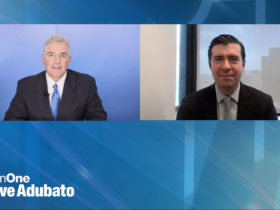When asked, most folks say that they consider themselves leaders of one sort or another. But leadership is not an absolute thing. It is not black and white. Some days we are better leaders than others. In fact, we demonstrate superior leadership on one specific task and a short time later we fall on our face when up against another.
Leadership is relative and the really great leaders are constantly engaged in self-examination and finding ways to get better.
With this in mind, consider the following questions that will help you measure your individual leadership ability. Don’t just answer yes or no. Instead, use the following scoring system: 4 is ‘always’, 3 is ‘most of the time’, 2 is ‘rarely’ and 1 is ‘never.’
I give honest feedback to my workplace colleagues whether I like them personally or not because it is in the best interest of our team.
I am open to feedback and constructive criticism from others at work regarding my performance and behavior even if I am not enamored by the source.
I take risks and propose new and innovative ideas in meetings when our team seems stuck on a particular issue or challenge. Simply put, I speak up when my team needs me.
I step up and take responsibility for my actions when things go wrong and mistakes are made that I’ve played some part in.
I seek to identify others who deserve credit when things go right even slightly over-stating their contribution because I know how important it is that professionals feel they are making a contribution. In the process, I even understate my role because drawing attention to myself may not necessarily help the team.
I give clear, concise direction as to what needs to be done and why. I state our goal as well as the consequences for failure in ways that leave little doubt as to what the real picture is.
I seek to monitor and coach colleagues and team members because I see their professional development and improvement as critical to our workplace’s overall success.
I ask probing, open-ended questions, facilitate engaging and goal-oriented meetings and initiate change that is needed to motivate others to get on board.
I stay calm in a crisis, even if there is a strong part of me that does feel anxious, nervous, uncomfortable or even angry. I understand that how I react to this type of situation communicates a powerful message to those around me as to how all of us should act when things don’t go exactly as planned.
I possess the “strategic agility” to adapt, revise and change my message and possibly the mode and timing of my communication, based on having a keen understanding of key stakeholders and important internal and external variables.
There are ten questions so 40 is the highest score you can get. That would mean that you are a nearly perfect leader, which no one is. What did you score?














